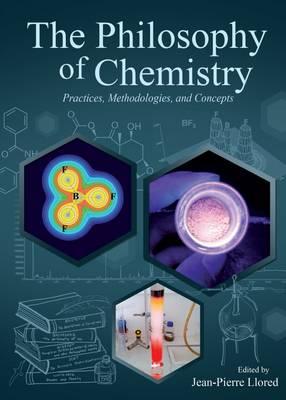Overview
This volume connects chemistry and philosophy in order to face questions raised by chemistry in our present world. The idea is first to develop a kind of philosophy of chemistry which is deeply rooted in the exploration of chemical activities. We thus work in close contact with chemists (technicians, engineers, researchers, and teachers). Following this line of reasoning, the first part of the book encourages current chemists to describe their workaday practices while insisting on the importance of attending to methodological, metrological, philosophical, and epistemological questions related to their activities. It deals with sustainable chemistry, chemical metrology, nanochemistry, and biochemistry, among other crucial topics. In doing so, those chemists invite historians and philosophers to provide ideas for future developments. In a nutshell, this part is a call for forthcoming collaborations focused on instruments and methods, that is on ways of doing chemistry.The second part of the book illustrates the multifarious ways to study chemistry and even proposes new approaches to doing so. Each approach is interesting and incomplete but the emergent whole is richer than any of its components. Analytical work needs socio-historical expertise as well as many other approaches in order to keep on investigating chemistry to greater and greater depth. This heterogeneity provides a wide set of methodological perspectives not only about current chemical practices but also about the ways to explore them philosophically. Each approach is a resource to study chemistry and to reflect upon what doing philosophy of science can mean.In the last part of the volume, philosophers and chemists propose new concepts or reshape older ones in order to think about chemistry. The act of conceptualization itself is queried as well as the relationships between concepts and chemical activities.Prefaced by Nobel Laureate in Chemistry, Roald Hoffmann, and by the President of the International Society for the Philosophy of Chemistry, Rom Harré, this volume is a plea for the emergence of a collective cleverness and aims to foster inventiveness.
Full Product Details
Author: Jean-Pierre Llored
Publisher: Cambridge Scholars Publishing
Imprint: Cambridge Scholars Publishing
Edition: Unabridged edition
Dimensions:
Width: 14.80cm
, Height: 5.30cm
, Length: 21.20cm
Weight: 1.134kg
ISBN: 9781443846059
ISBN 10: 1443846058
Pages: 780
Publication Date: 26 June 2013
Audience:
College/higher education
,
Professional and scholarly
,
Postgraduate, Research & Scholarly
,
Professional & Vocational
Format: Hardback
Publisher's Status: Active
Availability: Available To Order

We have confirmation that this item is in stock with the supplier. It will be ordered in for you and dispatched immediately.
Author Information
Jean-Pierre Llored was first trained as a chemical engineer (ENSCMu, France) and then became Professor ""agrégé"" of Chemistry. He is Deputy Editor of the journal Foundations of Chemistry. He completed his master's degree in Philosophy at the University Paris X in 2007. He works on the connection between the concept of emergence and chemistry under the supervision of Michel Bitbol and Isabelle Stengers. He will defend two PhDs in 2013: the first one in epistemology at the École Polytechnique, France, and the other in philosophy at the Free University of Brussels, Belgium. He also works on sustainable chemistry and nanochemistry from an epistemological standpoint. Among other projects, he collaborates with Rom Harré in order to develop a mereology for chemistry.




